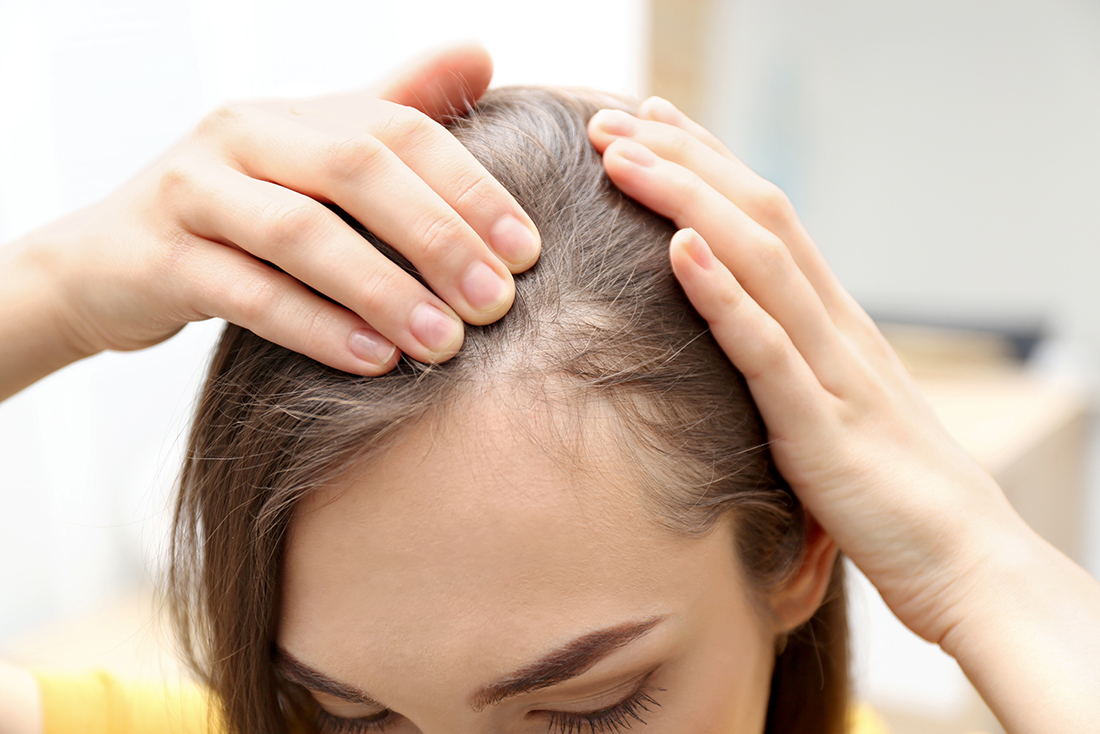
Introduction
Unwanted hair loss can be distressing and impact a person’s self-esteem. Hair loss, also known as alopecia, is a common condition that affects both men and women. There are various factors that contribute to hair loss, and understanding them is crucial for finding effective treatment and prevention strategies. In this comprehensive guide, we will delve into the causes, treatments, and prevention methods for hair loss, providing you with all the information you need to tackle this issue head-on.
The Basics of Hair Loss
Hair loss, or alopecia, occurs when hair follicles shrink and produce thinner and shorter hair strands. There are several types of hair loss, but the most common one is known as androgenetic alopecia, or pattern hair loss. This condition affects both men and women and is primarily caused by genetic and hormonal factors.
Genetic Factors in Pattern Hair Loss
If your parents or close relatives have experienced hair loss, chances are you may also be predisposed to it. Genes play a significant role in pattern hair loss, and specific genetic variants can increase the likelihood of developing this condition. Understanding your family history can help you anticipate and address hair loss before it becomes severe.
Hormonal Imbalances and Hair Loss
Hormonal imbalances can disrupt the natural hair growth cycle, leading to hair loss. One hormone that plays a prominent role in hair loss is dihydrotestosterone (DHT). DHT is an androgen hormone derived from testosterone that contributes to the miniaturization of hair follicles. Excessive DHT levels can lead to shrinking hair follicles, resulting in thinning hair.
Treatment Options for Hair Loss
If you are experiencing hair loss, there are several treatment options available that can help slow down the process and stimulate hair regrowth. It’s important to note that while these treatments can be effective, they may not work for everyone. Consulting a healthcare professional specializing in hair loss is essential to assess the best treatment plan for your specific condition.
Medications for Hair Loss
There are two FDA-approved medications commonly used to treat hair loss:
1. Finasteride (Propecia)
Finasteride is an oral medication that inhibits the conversion of testosterone to DHT. By reducing DHT levels, finasteride helps to slow down the miniaturization of hair follicles and promote hair growth. It is primarily prescribed for men with pattern hair loss and has shown positive results in many cases.
2. Minoxidil (Rogaine)
Minoxidil is a topical solution that is applied directly to the scalp. It works by promoting blood flow to the hair follicles, increasing their size and stimulating hair regrowth. Minoxidil is available over-the-counter and can be used by both men and women.
Preventing Hair Loss
While some factors contributing to hair loss may be beyond our control, there are several preventive measures that can help maintain healthy hair and reduce the risk of hair loss.
Healthy Lifestyle Habits
Maintaining a well-balanced diet and engaging in regular exercise can contribute to overall hair health. Nutrient-rich foods like fruits, vegetables, lean proteins, and whole grains provide the necessary vitamins and minerals essential for hair growth. Additionally, managing stress levels and getting enough sleep are also crucial for healthy hair.
Gentle Hair Care
Adopting a gentle hair care routine can help minimize damage to your hair. Avoid excessive heat styling, harsh chemical treatments, and tight hairstyles that pull on the hair. Opt for wide-toothed combs or brushes with soft bristles to prevent unnecessary hair breakage.
FAQs about Hair Loss
1. Does wearing hats or caps cause hair loss?
No, wearing hats or caps does not directly cause hair loss. However, wearing excessively tight headwear for extended periods can create traction and lead to a condition known as traction alopecia, which can result in hair loss.
2. Is stress a significant cause of hair loss?
Stress can contribute to hair loss by disrupting the natural hair growth cycle. However, hair loss caused by stress is usually temporary and can be resolved by finding effective stress management techniques or seeking professional help.
3. Can hair loss be reversed naturally?
While complete hair regrowth cannot be guaranteed, some natural remedies and lifestyle changes can promote hair health and stimulate regrowth. These include scalp massages, essential oils, and a nutritious diet.
4. Can hair loss be a sign of an underlying health condition?
Yes, hair loss can sometimes be a symptom of an underlying health condition such as thyroid disorders, nutrient deficiencies, or autoimmune diseases. It is advisable to consult a healthcare professional if you suspect your hair loss may be related to an underlying health issue.
5. Can hair loss be prevented in chemotherapy patients?
Hair loss is a common side effect of chemotherapy due to the treatment’s impact on rapidly dividing cells, including hair follicles. While it may not be completely preventable, cooling caps or scalp cooling systems can reduce the severity of hair loss during chemotherapy.
Conclusion
Understanding the causes, treatment options, and prevention strategies for hair loss is essential in managing this common condition effectively. By addressing the underlying factors contributing to hair loss and utilizing appropriate treatments, it is possible to slow down the progression of hair loss and, in some cases, stimulate hair regrowth. Remember, each individual’s experience with hair loss is unique, and consulting a healthcare professional is key to developing a personalized plan that suits your specific needs.